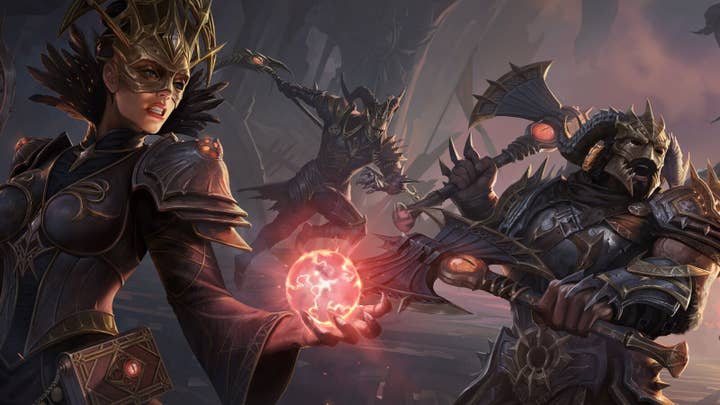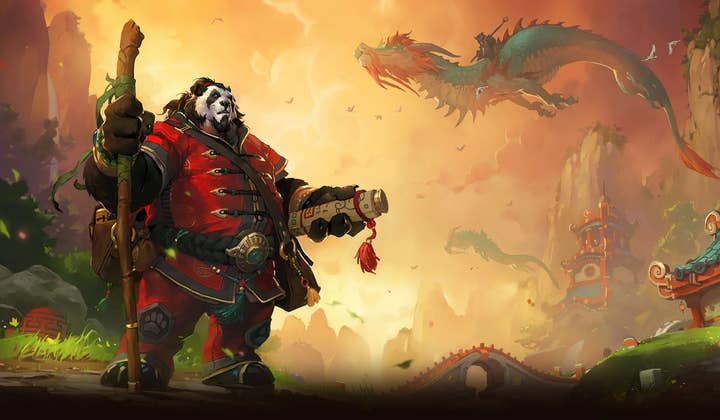Blizzard and Netease end 14-year partnership: Everything you need to know
World of Warcraft, Overwatch and more will be suspended in China from January, analyst tells us Blizzard titles are "not as paramount" to NetEase strategy
Sign up for the GI Daily here to get the biggest news straight to your inbox
At a glance
- Blizzard's biggest titles suspended in China from January 23, sales to cease in coming days
- NetEase and Blizzard failed to negotiate a renewal of 14-year partnership
- Blizzard seeking alternative partners, NetEase says there will be "no impact" on financials
Blizzard's biggest games will become unavailable in China after its long-running partnership with NetEase ends in January.
Since 2008, China-based NetEase has handled publishing duties for the likes of World of Warcraft, Hearthstone, and Overwatch, often extending and renewing these deals over the years.
However, the two parties failed to agree terms for a renewal and the partnership will end on January 23, at which point the following titles will be suspended in China:
- Diablo 3
- Hearthstone
- Heroes of the Storm
- Overwatch
- StarCraft (all titles)
- Warcraft 3: Reforged
- World of Warcraft
Blizzard has said it will cease new sales of these titles "in the coming days" but the upcoming releases for World of Warcraft: Dragonflight, Hearthstone: March of the Lich King, and season two of Overwatch 2 will continue as planned.
Diablo Immortal, which is co-developed by NetEase and Blizzard, is covered by a separate agreement and will not be affected.
What happened?
Both publishers have released statements regarding the breakdown of negotiations that would have led to a renewal of their partnerships.
"We have put in a great deal of effort and tried with our utmost sincerity to negotiate with Activision Blizzard"
William Ding, NetEase
NetEase CEO William Ding said: "We have put in a great deal of effort and tried with our utmost sincerity to negotiate with Activision Blizzard so that we could continue our collaboration and serve the many dedicated players in China.
"However, there were material differences on key terms and we could not reach an agreement.
"We hold high regard in our product and operational standards and abide by our commitments to Chinese players."
In its own statement, Blizzard said the two companies could not agree on a deal that was "consistent with Blizzard's operating principles and commitments to players and employees."
How does this affect Blizzard?
All games developed outside of China are required to have a Chinese publisher in order to legally and officially operate in that market.
However, it's worth emphasising the terms 'legally and officially' as many Chinese gamers continue to access non-domestic titles via other means; for example, the international version of Steam (although Blizzard's titles aren't currently available on this store).
Blizzard's Mike Ybarra said the publisher is "looking for alternatives to bring [its] games back to players in the future."
However, securing another Chinese publisher is likely to be a lengthy process – not the least of which is because the regulators have been very slow to issue publishing licences in the past year.
The government body responsible is also catching up on a backlog after multiple freezes on the process while it was restructured. China-based analyst Daniel Camilo tells GamesIndustry.biz that securing a publishing licence currently takes "months."
It's also unclear whether the ongoing process of Microsoft's proposed $67.8 billion acquisition of Activision Blizzard will affect the process, Camilo adds.
Blizzard will still have some presence in China thanks to Diablo Immortal. While the game failed to offset declines in the publisher's Q2 results when it launched internationally back in June, the delayed China launch proved to be a much needed boost in the most recent quarter.
Niko Partners' Daniel Ahmad tells GamesIndustry.biz that China remains an important market for Activision Blizzard as it is the world's No.1 games market by revenue.
Niko says World of Warcraft was the seventh highest-grossing PC game and ninth most played PC game in China during 2021.
"If Blizzard does partner with another Chinese game company, its games would need to re-enter the approval process under the new operator," Ahmad says. "However, there is an expedited process that operators can utilize. For example, when Warframe switched operators from Changyou to iDreamsky, it was able to utilize this separate approval process which is also used when a game's name needs to be changed or an additional platform needs to be added to the license.
"Blizzard may turn to Tencent, which partnered with Activision Blizzard to develop and publish Call of Duty: Mobile in China. Tencent, with its strong distribution channels and experience of operating foreign game franchises, is likely the sole logical partner for Activision Blizzard to replace NetEase."

How does this affect NetEase?
NetEase claimed that Blizzard's games represented "low single digits" as a percentage of its total net revenues and net income in 2021, and the same applied during the first nine months of 2022.
The Chinese publisher added the expiration of these licensing agreements will "have no material impact on NetEase's financial results."
However, Reuters cited a Daiwa Capital Markets report from earlier this month, which posited that the loss of Blizzard's titles would lower revenue by between 6% and 8%. This is based on the estimate that licensed games account for approximately 10% of NetEase's total revenue, with Blizzard accounting for up to 80% of its licensed games.
Reuters also reported that shares of NetEase fell by 11% during morning trading in Hong Kong following the announcement that the long-running partnership is to end.
"NetEase has continuously invested in new international studios and talent in recent times, and is likely to continue doing so in the foreseeable future"
Daniel Camilo, analyst
Analyst Daniel Camilo tells GamesIndustry.biz that NetEase has been shifting more towards a global strategy rather than relying on its home market, and that Blizzard's games in China are "not as paramount to NetEase's growth strategy presently and going forward."
He adds that, while Blizzard had been historically very popular in China – particularly with World of Warcraft – the publisher's games "don't carry the weight they used to in the last decade" in that market.
"The Chinese market, while huge, continues to be extremely restrictive for officially published content, both in amount and form," he says.
"NetEase has continuously invested in new international studios and talent in recent times, and is likely to continue doing so in the foreseeable future. Its goal is to maximize and potentialise the reach of its games worldwide – some current, new ones, and in development – and not necessarily in China."
In the last month alone, NetEase has taken a minority stake in Just Cause director Christofer Sundberg's studio Liquid Swords, acquired Goichi 'Suda51' Suda's Japan-based studio Grasshopper Manufacture, and opened its own internal studio in Japan, GPTrack50, led by Resident Evil producer Hiroyuki Kobayashi.
Earlier this year, it opened two US studios in the form of Jackalope Games and Jar of Sparks.
Ahmad agrees that, while Blizzard has been a key factor in NetEase's growth, its Chinese partner has also grown on its own merits.
"NetEase has recently embarked on a global expansion strategy and with the success of titles such as Naraka: Bladepoint in the past year, it’s clear that NetEase can successfully incubate and launch new self-developed game projects that drive revenue growth," he says.

